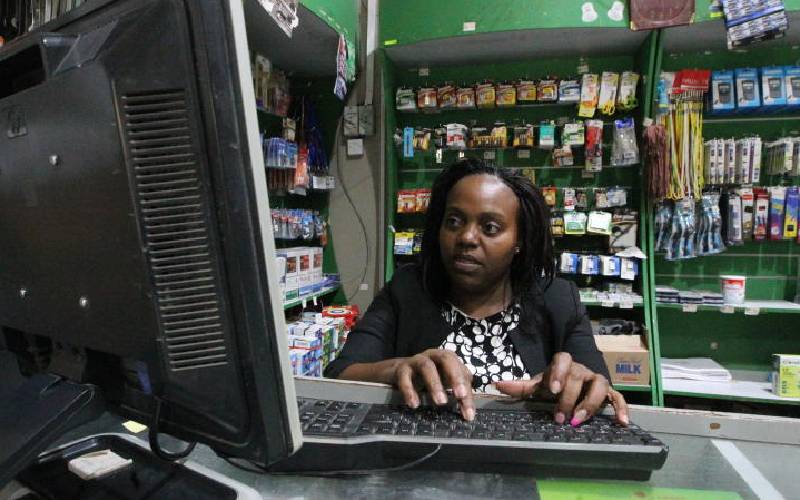×
The Standard e-Paper
Fearless, Trusted News

Manager Tuskys Athi River Rebecca Lena working at the Supermarket on June 28, 2021.[Jonah Onyango, Standard]
Armed with just Sh140,000, Rebecca Lena, a trainee manager at Tuskys, set out on the intractable task of extending a lifeline to the fallen retailer.







